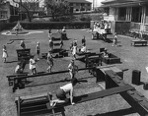Noosa Therapy and Healing
92 Marnie Cres, Doonan,Qld
ph 5471 1752

Noosa Therapy and Healing
92 Marnie Cres, Doonan,Qld
ph 5471 1752


I highly recommend Jonathan’s work.
My 11 year old son has always struggled to write legibly and it was frustrating him, so I enlisted Jonathan's assistance. As a result, Jonathan discovered some very fundamental skills which had been glossed over in his early development, and took my son back to the drawing board - literally! I have been very impressed with both the physical and emotional outcomes. I recommend Jonathan’s remedial movement work highly.
D R, parent and therapist
HELP IS AT HAND - Ph 5471 1742 OR EMAIL
Serving Noosa and Sunshine Coast Region
Learning Difficulties - Behaviour Challenges - Developmental Milestones
Numeracy and Literacy Support - Expressive Therapies
Has Your Child Passed Vital Developmental Milestones?
Are They Struggling with School Work or Exhibiting Challenging Behaviour?
Has Motor and Sense Development Been Checked?
Can They Cross Their Midlines? Is Hand, Eye and Ear Dominance Established?
Do You Know that Movement is Critical to Sense Development in First 7 Years?
Do You Know how Important the Development of the Four Foundation Senses is?
Do You Know that if Primitive Reflexes are Retained, Learning and Behaviour Difficulties can Follow?
Jonathan is an ex-teacher of 40+ year experience and a child development therapist having trained in counselling, expressive therapies, learning support and remedial movement therapy. Much of his work in influenced by the profound revelations of Rudolf Steiner.
Many learning challenges or learning delay can be attributed to incomplete development whether it be in the area of the 12 senses or unreleased primary or primitive reflexes.
The Four Four Foundation Senses.
Touch, Movement, Balance and Joie-de-Vivre need ennobling in the first 7 years of life. If not, they can inhibit learning and development. They are the foundation of higher adult sense faculties later in life.
The Sense of Touch – through the organ of the skin. This includes what is inside of me and what is outside of me. Important ways to boost this foundational sense include vaginal birth, swaddling, holding, positive tactile experiences (NOT PASSIVE experiences, like through media or Baby Einstein! Active experiences!) The lack of completion of this sense may be strongly related to ADHD.
The Sense of Life or sometimes called The Sense of Well-Being – this encompasses such things as if you can tell if you are tired, thirsty, hungry. The best way to boost this sense is to provide your children with a rhythm to help support this while it is developing. Some children have great difficulty recognising their own hunger or thirst cues, their own need for rest or sleep. A rhythm can be a great therapeutic help in this regard.
The Sense of Self-Movement – this is probably more familiar to therapists in some ways as the “proprioceptive system” in some ways. This sense encompasses the ability to move and hold back movement, and can also encompass such sensory experiences as containment (which can be a form of massage for premature babies) and also swaddling. Childhood games that involve starting, stopping can also affect this sense.
The Sense of Balance – This is balance in two separate realms. It is not only the ability to balance by use of the semicircular canals of the ears for midline balance so one can cross midline but also refers to the balance of life and being able to be centered, which again goes back to rhythm and the idea of in-breath and out-breath. It is considered a gateway to The Middle Senses of Smell, Taste Sight and Warmth. The higher cognitive senses are Hearing, Speech, Thought and Individuality.
You can read more about the 12 senses here.
“Primary”, “Primitive” or “Early” Reflexes
These reflexes need to be switched off and transformed to postural reflexes.
We are born with certain specific movements that are called ‘Primary’, ‘Primitive’ or ‘Early’ reflexes. These reflexes are unconscious and they need to disappear (be inhibited) otherwise they may lead to developmental delay and learning difficulties.
As children grow, these reflexes are usually naturally inhibited and replaced by postural reflexes.
If, for (as yet) unknown reasons, some of these reflexes are still present after 4 or 5 years of age, they create developmental delays and learning difficulties. Consequently movement therapy is used to reconstruct neural pathways.
The following reflexes could still be retained if your child presents with problems such as:
•poor balance (ATNR ...), bed wetting (Spinal Galant), restlessness (Moro), lack of concentration (Moro/Spinal Galant), hyperactivity (Moro), lack of stamina (Landau), lethargy (Moro), poor social skills (Moro), hypersensitivity (Moro ...), aggression (Moro...), poor posture (ATNR, TLR, STNR), pigeon toed and knees knocking (Spinal Galant), speech impediment (Rooting Sucking with Palmar), poor sleep patterns/behaviours (Moro), bowed legs (Plantar), poor pencil grip (Palmar), eye dysfunctions (Moro, ATNR, TLR, STNR)
Expressive Therapies
These therapies allow non verbal self-expression.
It is often through drawing, painting, Sandplay etc that children release inner tension or emotional challenges that may contribute to learning difficulties. It is well known that underlying negative feelings and emotions can block learning potential. Jonathan works with the physical, emotional, mental and soul/spiritual aspects of the child.
Initial 1½ hour assessment with written report $120 (concession available)
Follow up sessions $60
Jonathan is a trained remedial movement therapist.

Movement is critical for sensory development in the first seven years

Jonathan Anstock
Child Development Therapist
Remedial Movement Therapist
and Healing Facilitator
Noosa Therapy Studio, Doonan
PH: (07) 5471 1752






Noosa Therapy Studio, 92 Marnie Cres, Doonan, Noosa, Sunshine Coast, Qld 4562 trades as Soul Searching Solutions ABN: 86768482981
Cooroy, Eumundi, Doonan, Tewantin, Noosaville, Noosa, Sunshine Coast, Qld, Australia